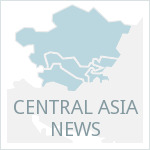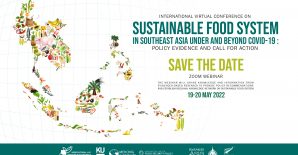News
Central Asian countries begin second lockdown
Uzbekistan and Kazakhstan were relatively quick to impose lockdown measures to contain COVID-19 in March, but each gradually eased restrictions in subsequent months. Now, as COVID-19 cases continue to increase, the countries have reinstated lockdown policies. Measures include the closing of markets, shops, and entertainment venues, public transportation decreases, and more. - The Diplomat
World Bank Appoints New Country Manager for Uzbekistan
Marco Mantovanelli is filling the role of World Bank Country Manager for Uzbekistan starting this month. After working as Country Manager for Kosovo, North Macedonia, Bosnia-Herzegovina, the Dominican Republic, and Haiti, he will now oversee 23 projects in Uzbekistan. Since 2014, World Bank investments in Uzbekistan have doubled to nearly $4.5 billion, with ongoing investments focusing on the various challenges brought about by COVID-19. - The World Bank
World Bank allocates $500 million to Uzbekistan for agricultural modernization
This week, the Government of Uzbekistan and the World Bank signed a $500 million loan agreement to implement a project that will help modernize the country’s agriculture. The funds are meant to complement Uzbekistan’s shift away from a focus on cotton and wheat farming to the production of higher value-added products like fruits and vegetables. The loan will help provide modern technologies, technical guidance, production support, agrology support, and trade. - Ministry of Investment and Foreign Trade of the Republic of Uzbekistan
WFP and Tajik Committee for environmental protection launch a climate change adaptation project
The UN World Food Programme and Tajikistan’s Committee for Environmental Protection have signed an agreement to launch a project that will increase the capacity of rural, food insecure communities to adapt to climate change. For example, the project will provide informational services like seasonal forecasts and weather alerts to allow for better planning. It will also provide cash assistance for participants who engage in asset-building activities. With $9 million in funding from the Green Climate Fund, the project is expected to benefit 115,000 people over the next four years, 60% of which will be women. - World Food Programme
Analysis & Related Information
COVID-19 Analyses: IFPRI Blogs
IFPRI is facilitating an ongoing blog series to discuss COVID-19 as it relates to food security and development at the global, regional, and country levels. Though some concern specific countries, the insights are applicable to others as the world collectively experiences the impacts of the pandemic.
IFPRI Virtual Events
IFPRI has been hosting virtual events to discuss various issues related to food and agriculture policy. Videos like this will periodically be posted publicly after being streamed live, and will include presentations from researchers, discussion between researchers, and Q&A. While there will not be a new seminar this week, please visit the link to view past seminars. This week's seminars include "Transforming Food systems for Affordable, Healthy and Sustainable Diets for All: A High-Level Discussion on Key Findings of the 2020 State of Food Security and Nutrition in the World Report" on July 14 and "Sharing civil society experiences in adapting evidence-based advocacy" on July 15. For registration information, please visit the pages for each webinar by following the initial link.
Virtual Event - Transforming Food Systems for Affordable, Healthy and Sustainable Diets for All: A High-Level Discussion on the Key Findings of the 2020 State of Food Security and Nutrition in the World Report
In this virtual event, participants from the FAO, IFPRI, US Congress and more discuss progress in the UN's goal to achieve zero hunger by 2030. Special attention is paid to the state of food security in the time of COVID-19. The full event is available through the above link, and a podcast and blog will be posted in coming days.
Economic and Social Impacts of COVID-19: Updates from the Listening to Tajikistan Survey
This factsheet provides an overview of Tajikistan’s economic outlook as the country struggles with COVID-19. 2020 has seen a steep increase in unemployment and the number of households reducing their food consumption. The employment effects are being felt in all industries, and expectedly, remittances are decreasing rapidly with 61% of households reporting a decline in remittances received in April. Further, there is a lack of information about COVID-19 and mitigation strategies among the population. Even though a majority of those surveyed have changed their daily behaviors in some way to reduce COVID-19 risk, a large portion of the population has not. - The World Bank
Teleworking is Not Working for the Poor, the Young, and the Women
Throughout the COVID-19 pandemic, one source of optimism for some has been that the prevalence of teleworking is expected to increase, allowing more flexibility in workers’ lives as well as decreased traffic and environmental impact. However, teleworking simply isn’t a viable option for most of those whose work relates to food, transportation, accommodation, and wholesale and retail trade. Informal workers, part-time workers, and women are particularly vulnerable. According to the authors, the likely onset of extremely decreased employment opportunities will require widespread action, including the broadening of social insurance and safety nets. - IMF Blogs
Publications & Reports
COVID-19 Exposes Asian Banks’ Vulnerability to US Dollar Funding
Park, C.Y., Rosenkranz, P., Tayag, M.C. 2020. ADB Brief. Manila, Philippines: Asian Development Bank
Fire lines as fault lines: Increased trade barriers during the COVID-19 pandemic further shatter the global food system
Chen, K., Mao, R. 2020. Food Security. Article
Linguistic Fragmentation at the Micro-Level: Economic Returns to Speaking the Right Language(s) in a Multilinguistic Society
Aldashev, A., Danzer, A.M. 2020. The Journal of Development Studies. Article.
Reexamining the National Savings-Investment Nexus Across Time and Countries
David, A. et al. 2020. IMF Working Paper No. 20/124. Washington, D.C.: International Monetary Fund
The State of Food Security and Nutrition in the World
FAO, IFAD, UNICEF, WFP, WHO. 2020. Rome, Italy: FAO.
Useful Links & Commentaries on Research Methods, Data & Publications
Social Science Prediction Platform Launch
Aleksandar Bogdanoski. 2020. Development Impact. World Bank Blogs.
Events & Announcements
Virtual Seminars on Applied Economics and Policy Analysis in Central Asia
IFPRI, Westminster International University in Tashkent, and the Lebniz Institute of Agricultural Development in Transition Economies (IAMO) will continue to host weekly seminars on topics related to applied economics and policy analysis in Central Asia. They will take place on Wednesdays, at 7:30am EST, 2:30pm Moscow, 4:30pm Dushanbe & Tashkent, 5:30pm Bishkek & Almaty. For subscribers, registration information will be sent on the Monday before each webinar. For more information and to subscribe, visit the link. This week's webinar will be hosted by IFPRI's Dr. Shenggen Fan from China Agricultural University, who will present Economic Impact of COVID-19 and Policy Responses: Lessons for Central Asian Countries from East Asian Experience.
Virtual AFE Seminar Series
A virtual seminar series organized by John List of the University of Chicago Department of Economics and Robert Metcalfe of Boston University's School of Business is being hosted weekly on Zoom. Each seminar will include a research paper presentation and Q&A, starting at 12pm EST on Wednesdays. Follow the link to view the full schedule of presenters and to sign up for invitations to the live seminar. Presentations will also by uploaded to a YouTube playlist.
Online Agriculture and Resource Economics Seminar
Dr. Marc F. Bellemare and PhD candidate Jeff Bloem will be hosting a weekly (Wednesdays, 11am CST) online seminar to discuss various research topics related to agricultural economics, nutrition, and food security. For example, the next seminar on June 24 includes a presentation of the paper, "Are High-Interst Loans Predatory? Theory and Evidence from Payday Lending" by New York University's Hunt Allcott et al. Follow the link for registration information and a schedule of upcoming seminars.
Development Policy and COVID-19: eSeminar Series
The World Bank's Development Research Group is hosting an online seminar series for discussions on development policy as it relates to COVID-19. The seminars are completely public, do not require an application or sign-up, and will continue for the foreseeable future.
If you would like us to add your colleagues to our mailing list, please direct them to the following link.
The articles included in this news digest have been generated from online sources. Any opinions stated herein are not representative of, or endorsed by, the International Food Policy Research Institute or its partners.



